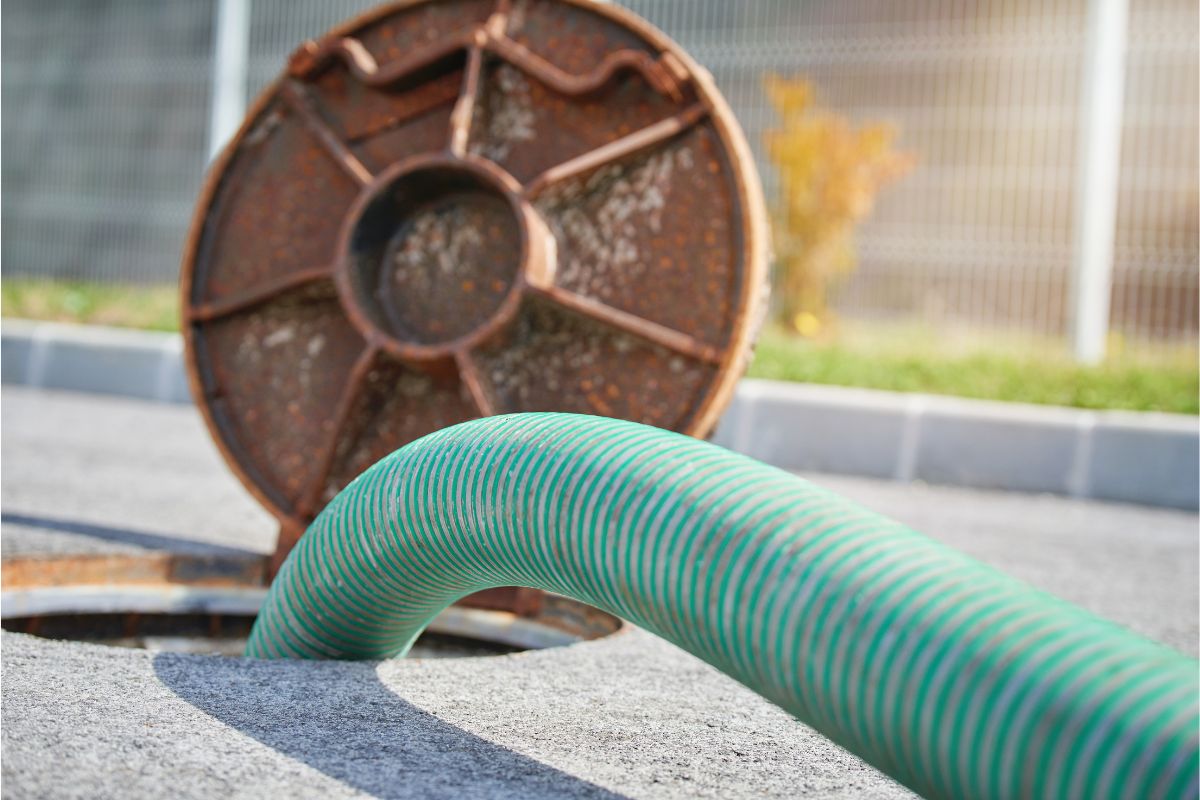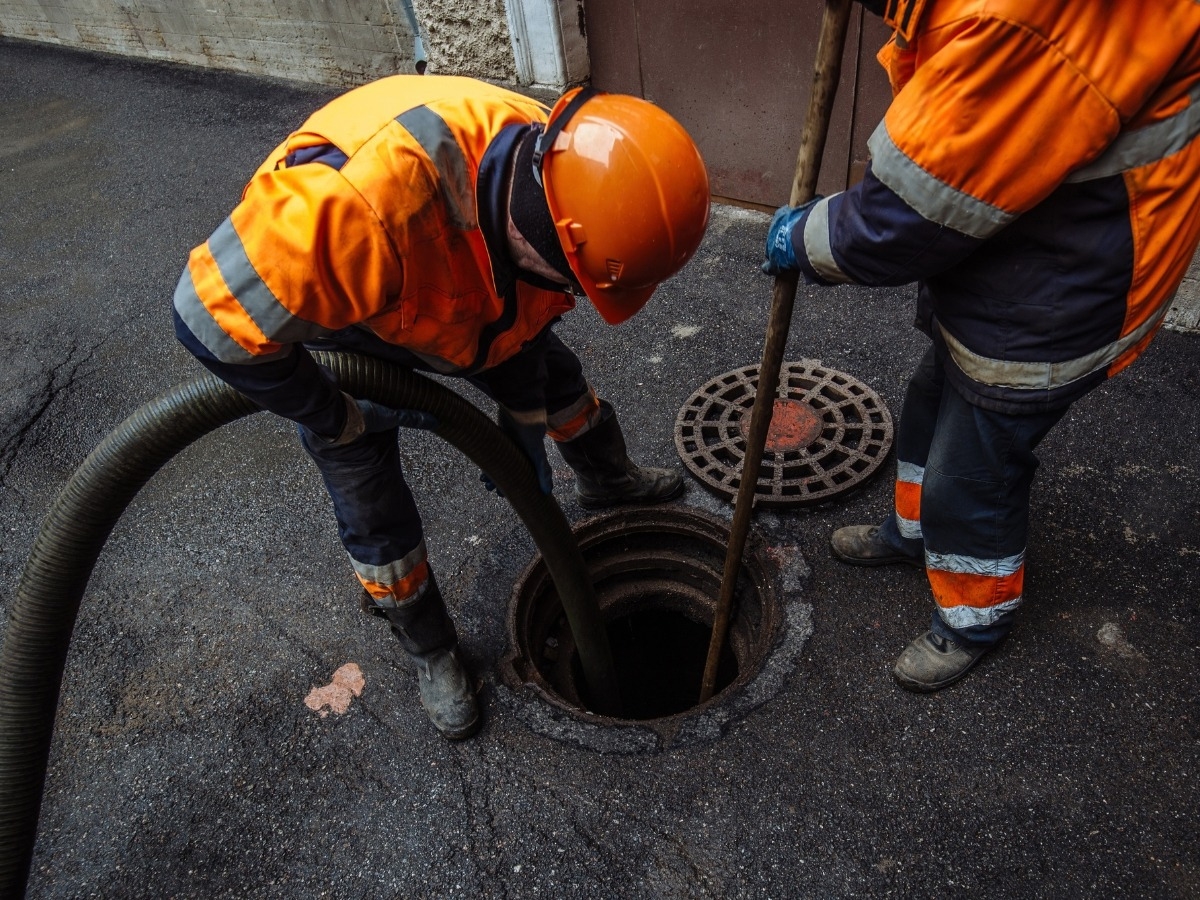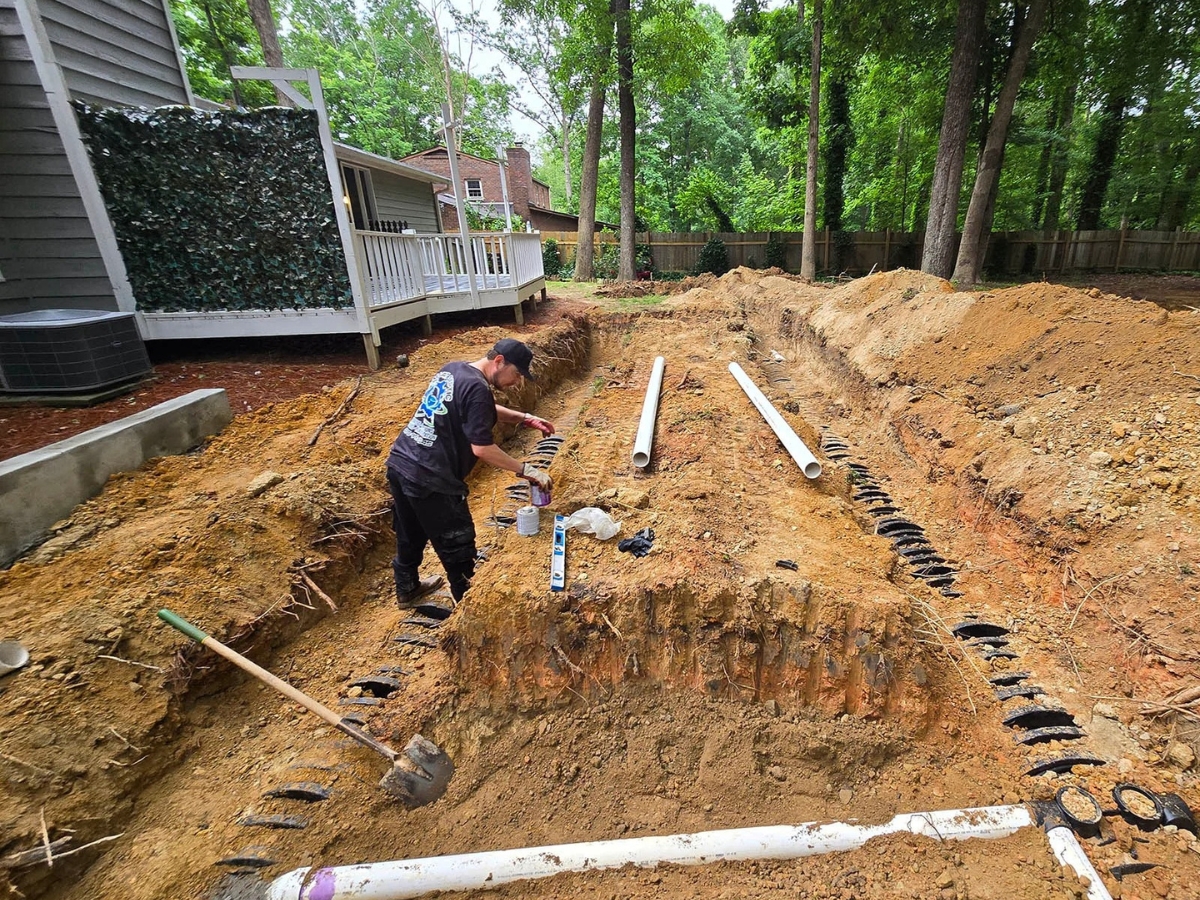Wondering what are the 3 types of septic systems? If you own a home, understanding these systems is crucial. Septic systems are essential for managing household wastewater when you’re not connected to a city sewer line. Septic tank sizes vary depending on the number of bedrooms in your home and the local regulations.
In this blog post, we’ll explore the three main types of septic systems: Conventional Septic Systems, Alternative Septic Systems like Aerobic Treatment Units (ATUs) and Mound Systems, and Advanced Treatment Units (ATUs) such as Recirculating Sand Filters (RSFs) and Constructed Wetlands.
By the end, you’ll have a clear understanding of how each system works, their pros and cons, and which might be the best fit for your home.
Discover What Are the 3 Types of Septic Systems
Conventional Septic Systems
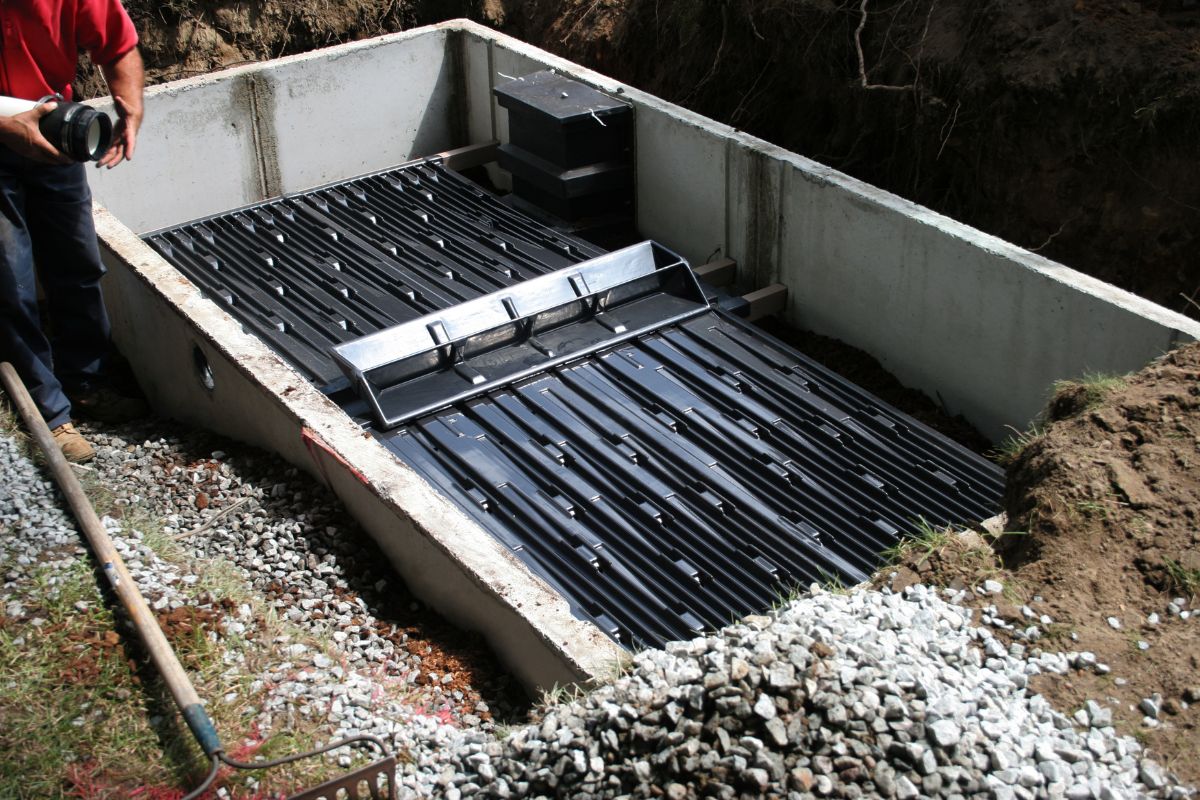
Conventional septic systems are the most common type found in residential areas. They consist of two main components: a septic tank and a drain field (also known as a leach field).
A conventional septic system installation is designed to treat and dispose of household wastewater on-site. The system typically includes:
- Septic Tank: This underground tank receives all wastewater from your home. It’s designed to separate solids (sludge) from liquids. Bacteria inside the tank break down organic matter, converting it into liquid effluent and gases.
- Drainfield: Once the wastewater undergoes treatment in the septic tank, the resulting liquid effluent is directed into the drain field. This consists of a system of perforated pipes laid in trenches filled with gravel or porous substances. The effluent gradually infiltrates the soil, undergoing additional natural purification processes before it eventually reaches groundwater.
How Conventional Septic Systems Work
Conventional septic systems work through a series of natural processes:
- Separation: When wastewater enters the septic tank, solid particles sink to the bottom as sludge, while lighter substances such as grease rise to the surface as scum.
- Decomposition: Bacteria inside the septic tank break down organic solids, converting them into liquid effluent and gases (mostly methane and carbon dioxide).
- Filtration: Liquid effluent exits the septic tank and flows into the drain field. Here, soil microbes further filter and treat the wastewater, removing harmful bacteria, viruses, and nutrients.
Ideal Conditions and Maintenance Tips
For optimal performance and longevity of your conventional septic system, consider the following tips:
- Regular Pumping: Schedule regular pumping of the septic tank every 3-5 years to remove accumulated solids and prevent system failure.
- Water Conservation: Reduce water usage to avoid overloading the system. Fix leaks promptly and spread out laundry and dishwasher loads throughout the week.
- Protect the Drainfield: Avoid planting trees or driving heavy vehicles over the drainfield to prevent damage to pipes and soil compaction.
- Annual Inspections: Have a professional inspect your septic system annually to catch any issues early and ensure it’s operating efficiently. The Georgia Department of Health also has resources you can use to understand rules and regulations on sewage and septic systems.
Alternative Septic Systems
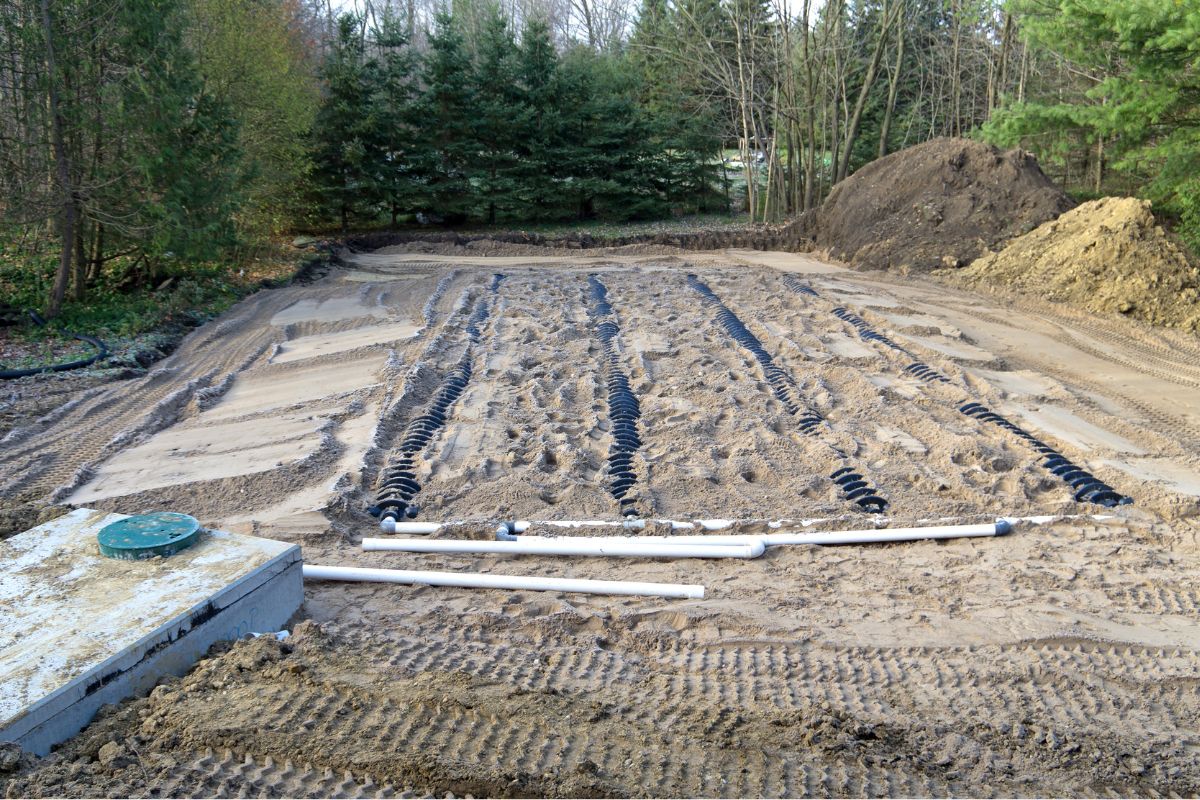
Alternative septic systems, including rural septic systems, are designed for properties where conventional systems may not be feasible due to soil conditions, space limitations, or environmental considerations. These systems provide innovative solutions to effectively treat and dispose of wastewater.
Aerobic Treatment Units (ATUs)
How They Work: Aerobic Treatment Units (ATUs) use oxygen to break down and treat wastewater more actively than conventional systems. They incorporate aeration mechanisms that promote aerobic (oxygen-dependent) bacterial activity, speeding up the decomposition of organic matter.
Advantages and Disadvantages:
- Advantages: ATUs generally produce cleaner effluent suitable for reuse or discharge into sensitive environments. They can handle higher wastewater volumes and are more efficient in breaking down solids.
- Disadvantages: ATUs require electricity to operate the aeration system, which adds to operational costs. Regular maintenance of the aeration components is necessary to ensure proper function.
Mound Systems
Design and Components: Mound systems are elevated beds of sand or gravel where wastewater is treated and filtered before being dispersed into the soil. They are used in areas with high water tables, shallow bedrock, or poor soil drainage.
Suitable Conditions and Maintenance:
- Mound systems require careful design to ensure proper filtration and drainage.
- Regular septic inspection and maintenance of pumps and distribution pipes are crucial to prevent clogging and ensure even distribution of effluent.
Sand Filter Systems
Functionality and Installation: Sand filter systems use layers of sand and gravel to filter and treat wastewater before it percolates into the soil. They are effective in removing contaminants and pathogens from wastewater.
Pros and Cons:
- Pros: Sand filter systems produce high-quality effluent suitable for recharging groundwater or other reuse applications. They are relatively compact and can be installed in various soil conditions.
- Cons: Initial installation costs can be higher than conventional systems. Periodic replacement or maintenance of sand media may be required to maintain system efficiency.
When comparing septic vs sewer systems, alternative septic systems provide flexibility and efficiency in wastewater management, tailored to specific site conditions and environmental requirements. Choosing the right system involves considering site characteristics, local regulations, and long-term maintenance needs.
Advanced Treatment Units (ATUs)
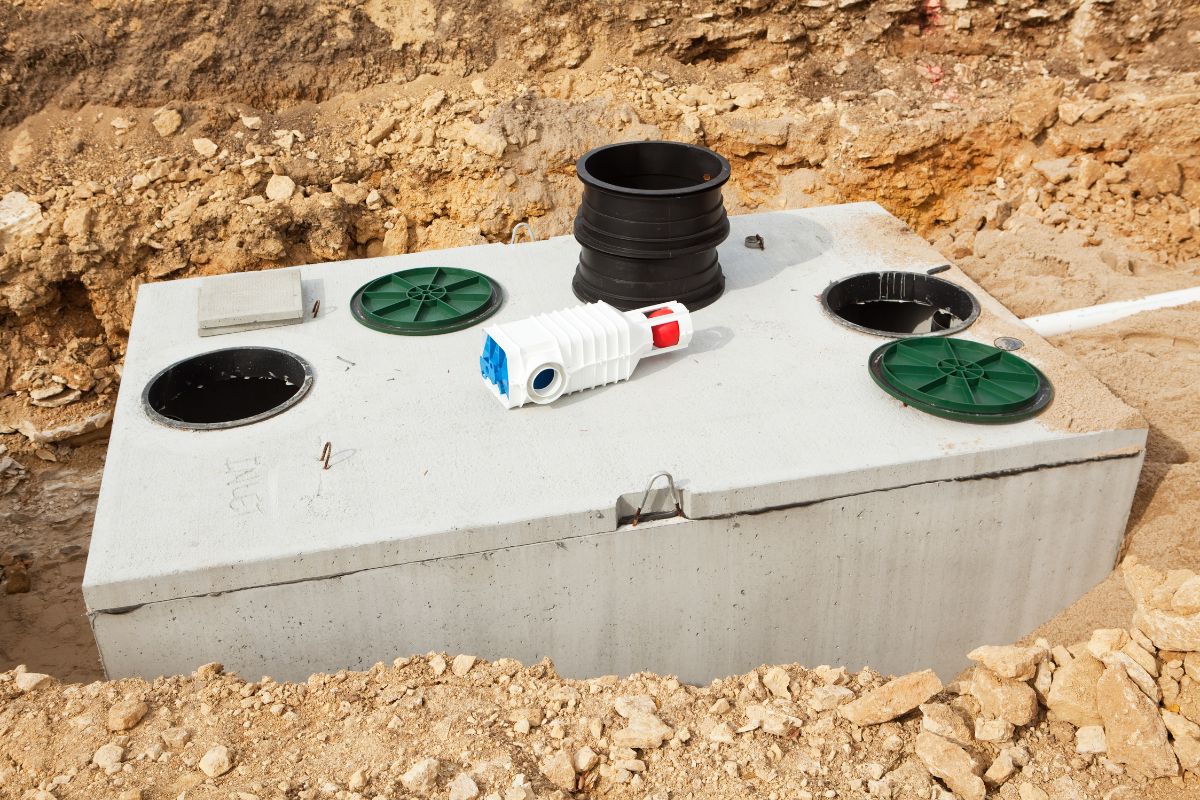
Advanced Treatment Units (ATUs) represent the cutting-edge of septic system technology, offering enhanced treatment capabilities compared to conventional and alternative systems. These units are designed to provide superior wastewater treatment, making them suitable for environmentally sensitive areas or properties with specific regulatory requirements.
ATUs play a crucial role in modern septic systems by incorporating advanced technologies to further treat wastewater beyond what conventional septic systems can achieve. They are often used in areas where conventional septic systems are not sufficient to meet regulatory standards or environmental protection goals.
Recirculating Sand Filters (RSFs)Mechanism and Efficiency
Recirculating Sand Filters (RSFs) utilize layers of sand and gravel to filter and treat wastewater. The system operates by recirculating a portion of treated effluent back through the filter bed, promoting aerobic bacteria growth and enhancing treatment efficiency.
Environmental Benefits:
- RSFs effectively remove contaminants, nutrients, and pathogens from wastewater, producing high-quality effluent suitable for groundwater recharge or reuse.
- The filtration process in RSFs helps improve water quality and protects surrounding ecosystems by reducing nutrient runoff and potential groundwater contamination.
Constructed WetlandsConcept and Process
Constructed Wetlands mimic natural wetland ecosystems to treat wastewater. They consist of shallow basins or channels filled with aquatic plants (such as cattails and reeds) and gravel or soil. Wastewater flows through these wetland cells, where plants and microbes further treat contaminants.
Applications and Effectiveness:
- Constructed Wetlands are versatile and can be adapted for various scales and types of wastewater treatment.
- They are effective in removing pollutants through natural processes like filtration, adsorption, and microbial degradation.
- Constructed Wetlands also provide habitat for wildlife and contribute to biodiversity conservation.
Advanced Treatment Units like RSFs and Constructed Wetlands demonstrate the potential of nature-based and engineered systems to achieve high levels of wastewater treatment while minimizing environmental impact. Their application depends on site-specific conditions, regulatory requirements, and the desired level of treatment.
What Are the 3 Types of Septic Systems: Considerations
When choosing a septic system for your property, it’s important to consider several factors that can influence cost, installation, maintenance, and environmental impact.
When selecting a septic system, consider these factors based on your property’s characteristics:
- Property Size: Larger properties may accommodate conventional systems more easily, while smaller or irregularly shaped lots might benefit from alternative or compact ATU designs.
- Soil Conditions: Soil type and permeability affect drainage and filtration capabilities. Alternative systems like Mound Systems or Sand Filters are designed to work in challenging soil conditions.
- Local Regulations: Check local health departments or environmental regulations. Some areas have specific requirements for septic system types based on environmental sensitivity, property size, or proximity to water bodies.
Choosing the right septic system involves balancing upfront costs, ongoing maintenance, environmental impact, and regulatory compliance. Septic system soil testing can help determine the best system for your property’s needs and environmental conditions. Consulting with a qualified septic system professional can ensure you select the system best suited to your property’s needs and environmental conditions.
Work with Experienced Pros with Your Septic Tank Systems
Are you in search of the perfect septic tank system in Holly Springs, Kennesaw, Acworth, or other surrounding areas? Selecting the right septic system and maintaining it properly are essential steps in guaranteeing the long-term health and efficiency of your property’s wastewater management. At Smart Septic Pros, we recognize the significance of a well-maintained septic system and are here to assist you at every stage.
We offer essential septic services to maintain your system’s health and longevity. This includes regular Septic Tank Pumping to prevent issues, thorough Septic Tank Cleaning to reduce backups, skilled Septic Repairs for any system issues, and detailed Septic Inspections for peace of mind and efficient operation. Don’t wait until there’s a problem with your septic system. Contact Smart Septic Pros today and experience the difference our expertise can make for your property.
